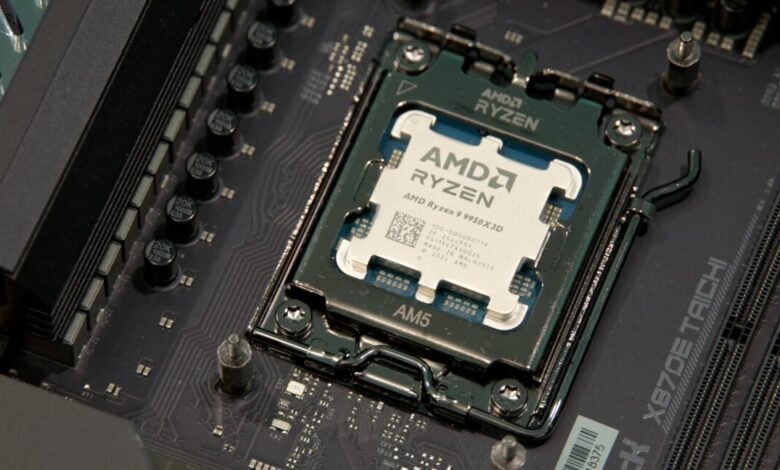AMD Blames Motherboard Makers for CPU Failures, Echoing Intel’s Past

▼ Summary
– AMD’s X3D-series Ryzen chips are popular with gamers due to their extra 64MB of L3 cache, which significantly boosts game performance.
– Some early users experienced issues like boot failures, physical scorching, and burnout, particularly with the 9800X3D processor on ASRock motherboards.
– AMD executives identified motherboard makers not following recommended specifications as the likely cause, citing elevated default power settings for performance gains.
– The AM5 socket had a similar issue in early 2023, where Ryzen 7000-series X3D chips became deformed due to incorrect voltage settings on some motherboards.
– AMD addressed the earlier problem by releasing BIOS updates with stricter voltage limitations to prevent damage to CPUs and sockets.
AMD’s X3D-series Ryzen processors have gained significant traction among PC gamers, largely due to the substantial performance boost provided by their additional 64MB of L3 cache. This architectural advantage makes them particularly well-suited for gaming, where faster memory access can dramatically improve frame rates and responsiveness. However, some users have encountered serious issues, including boot failures and even physical damage such as scorching or burnout. These problems appear most frequently with the 9800X3D model, especially when used with certain ASRock motherboards. One ongoing Reddit discussion has documented over 150 separate failure reports involving that specific CPU and various ASRock boards.
During a recent interview with the Korean tech outlet Quasar Zone, AMD representatives David McAfee and Travis Kirsch addressed these concerns directly. They identified the root cause as motherboard manufacturers deviating from AMD’s prescribed voltage and power specifications. It’s not uncommon for board partners to push default power limits beyond official recommendations in an effort to maximize performance, a practice seen across both AMD and Intel platforms. While this can yield minor speed improvements, it also introduces instability and risk, particularly for high-performance chips like the X3D series, which operate with tighter thermal and electrical tolerances.
This isn’t the first time such an issue has arisen with the AM5 platform. Earlier in 2023, shortly after the launch of Ryzen 7000-series X3D chips, users reported physical deformation of the processors, including warping or bulging on the underside. These defects often led to permanent CPU damage and bent socket pins. At that time, AMD also pointed to incorrect voltage configurations on certain motherboards as the primary cause. The company responded by releasing updated BIOS versions that imposed stricter voltage limits, helping to prevent further incidents.
(Source: Ars Technica)





